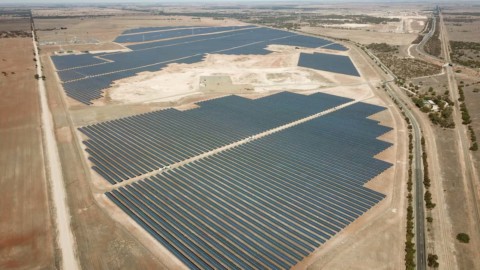CSIRO is set to lead an $11 million project to develop new technology to support a flexible approach to energy demand, which is expected to provide consumers with better control over their electricity usage, lower energy costs, and ease pressure on the energy grid.
Flexible demand is an alternative to the traditionally rigid energy network infrastructure, offering a way to lighten the load on the grid during busy periods, reduce energy costs and lower peak demand.
However, the flexible demand approach is still nascent and requires new technologies, market processes and ways of engaging with energy users.
The Digital Infrastructure Energy Flexibility (DIEF) pilot project will address these issues, bringing together a consortium of project sponsors responsible for funding, research outcomes, coordinating artificial intelligence competitions and onboarding buildings onto the digital platform.
Up to 200 buildings, selected by the project consortium, will participate in the pilot and be connected to the DCH Platform.
The DCH Platform forms part of CSIRO’s developing Smart Energy Mission which is focused on building Australia’s next generation of integrated and equitable energy systems.
CSIRO’s Energy Director, Dr Dietmar Tourbier, said the DIEF project would help improve the viability and uptake in flexible demand, delivering benefits to consumers and industry alike.
“Flexible demand is critical because it ensures grid stability, reduces costs, supports increasing renewable energy integration, and enables a more sustainable and efficient energy system,” Dr Tourbier said.
“This project has the potential to create a new ecosystem of technologies and solutions that will give consumers more control over their energy bills and emissions.”
The project will allow property owners within the pilot to share data and build innovative software applications for sophisticated management of building carbon emissions.
Property owners will be able to identify opportunities for energy flexibility and productivity improvements resulting in reduced operating costs, energy use and improved comfort and occupant experience.
The data collected during this trial will be used to inform the government on the creation of a flexible demand policy and asset register.
CSIRO Chief Research Consultant for Energy, Dr Stephen White, said the technology had many potential benefits.
“This technology will not only allow people to get data out of their buildings and make it accessible to their service providers, but they will also be able to receive data from external providers such as the electricity market and the Bureau of Meteorology,” Dr White said.
“When people process all this data, they can discover cost trends and plan accordingly.”
Of the 200 buildings to be connected, the Data Clearing House expects to gain access to devices that consume over 5MW of power from the grid, (up to 0.08 per cent of total demand in New South Wales). The power usage of these devices can be intelligently controlled to match up with periods of high renewable generation.
Members of the New South Wales consortium who are sponsoring the project include CSIRO, the New South Wales Government, Amber Electric, DNA Energy, EVSE Australia, Nube iO, Property and Development NSW, RACE for 2030 CRC, UNSW, UOW, and Wattwatchers.
The project was funded with a $3.75 million grant from the New South Wales Government, under the Net Zero Plan Stage One: 2020-2030. The remaining funding (cash and in-kind) was provided by consortium members and in-kind funding from CSIRO.
CSIRO’s Data Clearing House Platform (DCH) provides the digital infrastructure for the project. DCH is a software platform for owners and operators of existing or new commercial, industrial, government, and mixed-use developments to connect with service providers to solve common data related problems.
Featured image: A flexible demand energy system. Image credit: CSIRO.
















